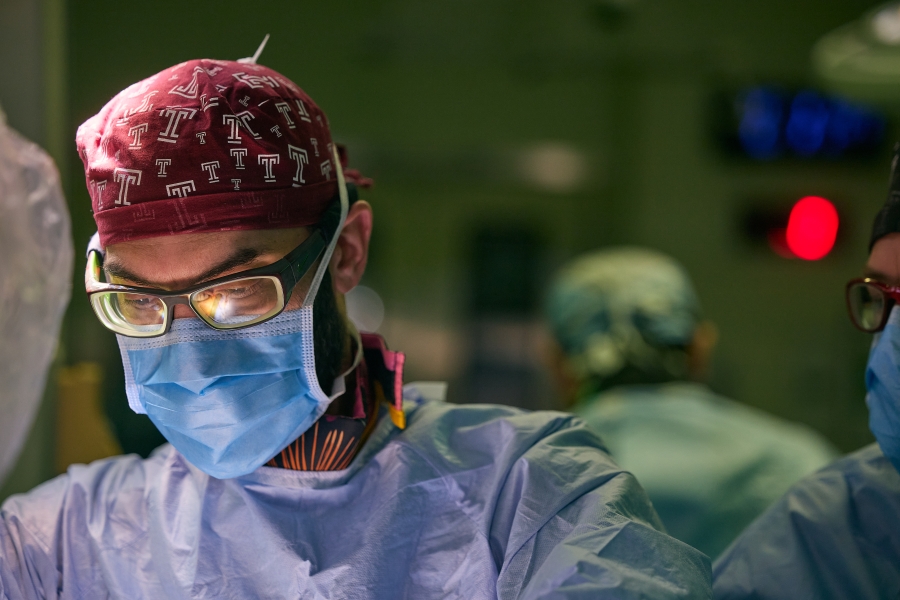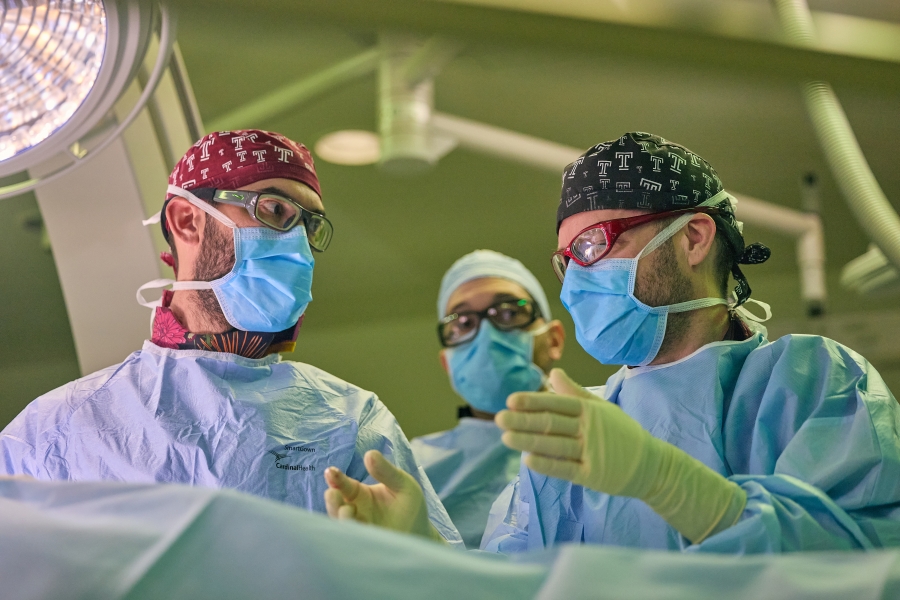If you or a loved one have been diagnosed with heart failure, starting an exercise program may be the last thing you expect the doctor to recommend. Fatigue, shortness of breath and even fear that can come with heart failure likely make exercise seem out of reach.
But exercise, as part of a medically supervised cardiac rehabilitation (rehab) program, is one of the first recommendations I have for my patients living with heart failure and heart disease.
What Is Cardiac Rehab?
Cardiac rehab is a medically supervised outpatient program at a heart rehab center such as Temple's Heart & Vascular Institute. Cardiac rehab helps people with heart problems improve their heart health, feel better and live longer.
An individualized exercise program that safely gets your cardiovascular system pumping at a level that's right for you is an important part of cardiac rehab. So are education and counseling to help you make heart-healthy lifestyle changes, such as quitting smoking and choosing and enjoying healthy foods.
Cardiac rehab is a team effort. Doctors, nurses, physical therapists, dietitians and mental health professionals work together to develop a personalized plan based on your needs. The goal? To help you get and stay on track to a healthier heart.
What are the Benefits of Cardiac Rehab?
If you have heart failure, you may wonder if you can actually improve your condition. Studies confirm with a resounding yes, you can. Cardiac rehab is loaded with benefits that help you take charge of and improve your health.
Here are the top 5 benefits to participating in a cardiac rehab program:
1. Regain strength and endurance
The heart is your body's most important muscle. Work it with exercise that gets it pumping, and it gets stronger like a bicep worked by pumping iron.
A stronger heart helps the heart and lungs get oxygen-rich blood to muscles throughout the body, strengthening and fueling them.
2. Reduce risk factors of heart disease
Exercise burns calories and builds muscle. Combined with a heart-healthy diet of lean proteins, plenty of fresh vegetables and fruits and whole grains, you have a prescription for losing weight. Not to mention, improving key risk factors (like cholesterol and blood pressure) of heart disease that doesn't involve taking a pill.
3. Have more energy and improve your quality of life
It's simple — moving more makes it easier to move more. Exercising and fueling your body with a healthy diet fires up energy levels and stamina. It helps to get you back to doing daily activities that heart failure may have pushed out of reach.
4. Reduce stress and depression
When you feel better physically, a better mental outlook typically follows. Exercise helps reduce stress and naturally boost the body's "feel-good" hormones. Education and support help you pinpoint stressors and learn how to best handle them.
During cardiac rehab, you spend time with other people dealing with heart-related issues, too. They understand what you're going through, which helps you feel less alone.
5. Lower risk of future heart problems and hospitalizations
Cardiac rehab focuses on stabilizing, slowing and even reversing heart failure's progression. Studies show that people who commit to completing a cardiac rehab program and reap its benefits reduce their risk of having a future cardiac event. They’re also less likely to be hospitalized.
The benefits of cardiac rehab may seem too good to be true. They're not, but it takes doing the work to earn the benefits. When you participate in a heart rehab program, you're also developing heart-healthy habits you'll be more likely to stick with after your program ends, keeping those benefits coming.
Helpful Resources
Looking for more information?
- Call 215-728-3944 to learn how to get started in a cardiac rehab program
- Get to know cardiologist Dr. Ted Parris
- About Temple's Heart & Vascular Institute


